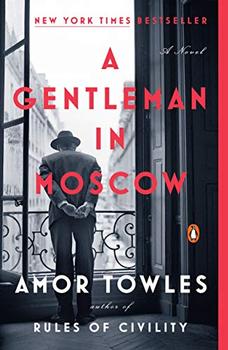Summary | Excerpt | Reading Guide | Reviews | Beyond the book | Read-Alikes | Genres & Themes | Author Bio

A moving, funny, triumphant novel that exalts the quiet victories of the inconspicuous among us.
We are in the center of Paris, in an elegant apartment building inhabited by bourgeois families. Renée, the concierge, is witness to the lavish but vacuous lives of her numerous employers. Outwardly she conforms to every stereotype of the concierge: fat, cantankerous, addicted to television. Yet, unbeknownst to her employers, Renée is a cultured autodidact who adores art, philosophy, music, and Japanese culture. With humor and intelligence she scrutinizes the lives of the building's tenants, who for their part are barely aware of her existence.
Then there's Paloma, a twelve-year-old genius. She is the daughter of a tedious parliamentarian, a talented and startlingly lucid child who has decided to end her life on the sixteenth of June, her thirteenth birthday. Until then she will continue behaving as everyone expects her to behave: a mediocre pre-teen high on adolescent subculture, a good but not an outstanding student, an obedient if obstinate daughter.
Paloma and Renée hide both their true talents and their finest qualities from a world they suspect cannot or will not appreciate them. They discover their kindred souls when a wealthy Japanese man named Ozu arrives in the building. Only he is able to gain Paloma's trust and to see through Renée's timeworn disguise to the secret that haunts her. This is a moving, funny, triumphant novel that exalts the quiet victories of the inconspicuous among us.
While brimming with audacity and indignation, The Elegance of the Hedgehog is tempered by a smooth infusion of sophisticated humor and a boundless passion for art. This novel speaks not only of film, music, and literature, but also reflects on the more subtle and forgotten arts of relationship, perception, and understanding. This complex mixture results in a searing diatribe on social class divisions and demands that we call into question our own preconceptions and judgments. The concepts of art and discrimination cross cultural lines and Ms. Barbery's frustration with the world and its lack of passion is perhaps why this work translates so well. Both honest and artfully executed, The Elegance of the Hedgehog strikes a universal chord leaving the reader much wiser for the journey...continued
Full Review
(672 words)
This review is available to non-members for a limited time. For full access,
become a member today.
(Reviewed by Megan Shaffer).
Author Muriel Barbery (who currently lives in Kyoto with her husband) reveals a
passion for the arts and cultural practices of Japan as she incorporates
references to Japanese poets, directors, films, and traditions into The
Elegance of the Hedgehog.
The term wabi-sabi, in its simplest form, is the Japanese view of a
simple aesthetic; less is more. Overall, it is a kind of quiet, mellow beauty
that is uncluttered and alleviates the weight of the material. Originally two
words, they have been paired over time to express harmony, grace, and simple
beauty. One who is wabi-sabi has an understated appreciation of nature's beauty
and finds peace in simplicity. Likewise, the term can be applied to styles of
art, architecture,...
This "beyond the book" feature is available to non-members for a limited time. Join today for full access.

If you liked The Elegance of the Hedgehog, try these:

by Amor Towles
Published 2019
From the New York Times bestselling author of Rules of Civility - a transporting novel about a man who is ordered to spend the rest of his life inside a luxury hotel.

by Fredrik Backman
Published 2018
The #1 New York Times bestselling author of A Man Called Ove returns with a dazzling, profound novel about a small town with a big dream - and the price required to make it come true.
The secret of freedom lies in educating people, whereas the secret of tyranny is in keeping them ignorant
Click Here to find out who said this, as well as discovering other famous literary quotes!